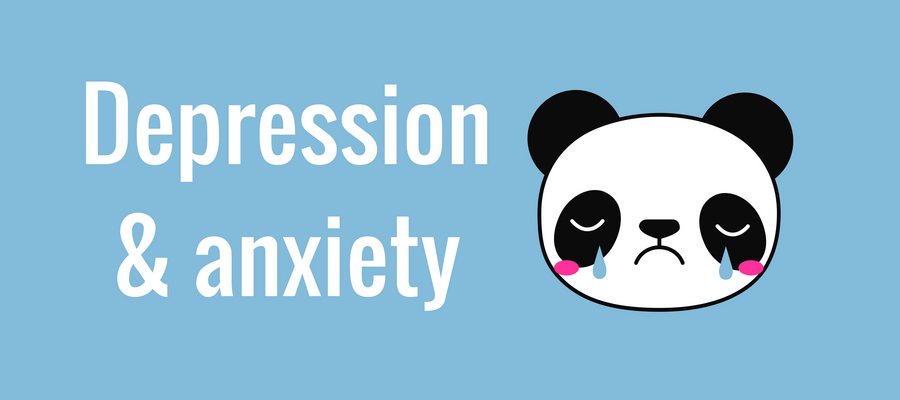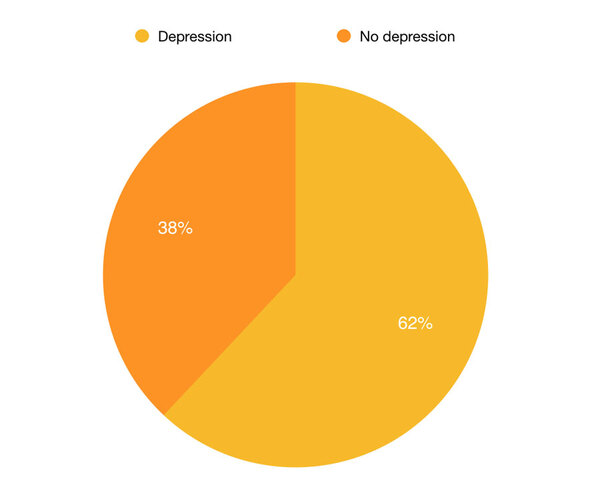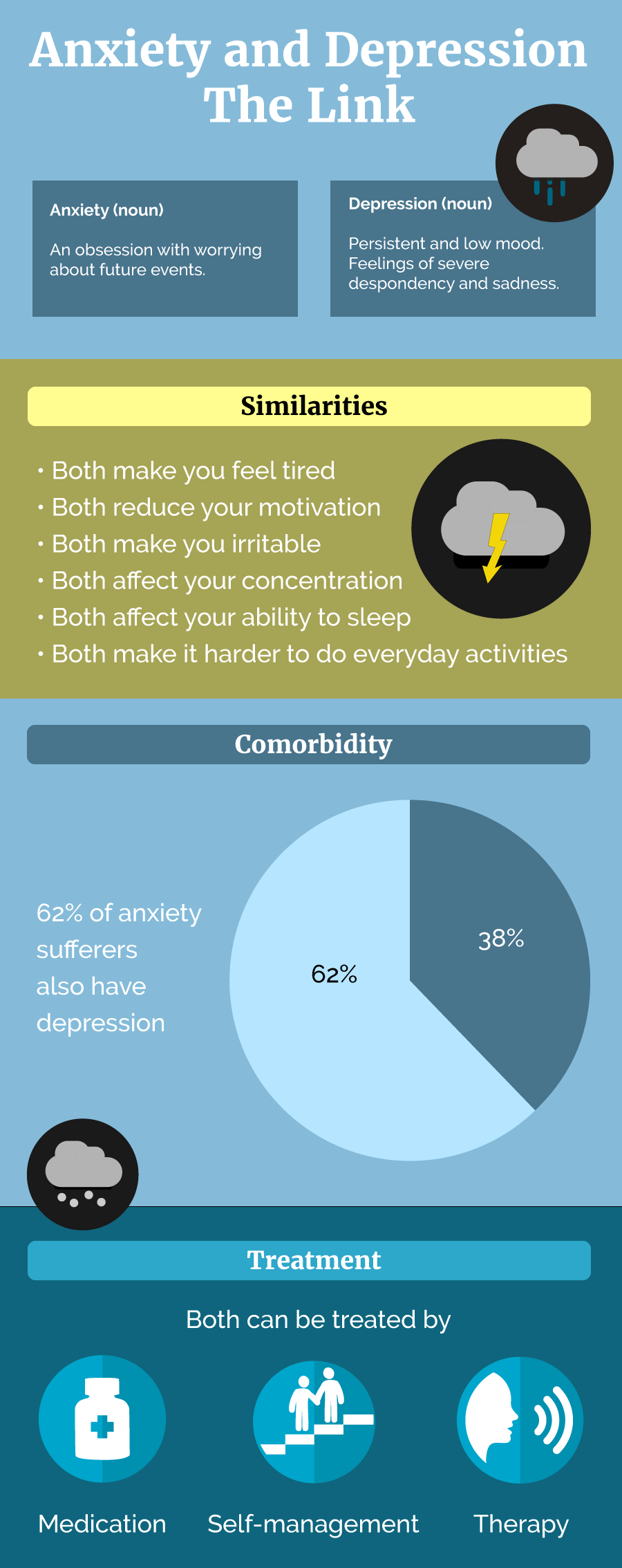
Are anxiety and depression linked?
Anxiety and depression have a lot in common: they can produce similar symptoms, are treated with the same therapies and medications and often occur together. Which is enough to ask "are they simply the same thing?"
Are they the same thing?
The short answer is no. The medium answer is yes, sort of. For the long answer, read the rest of the article.
You sometimes see them described as:
"Two sides of the same coin."
And others describe it as:
"Depression is an obsession with the past. Anxiety is an obsession with the future."
So, they are not the same thing. However, they are closely linked. It is worth asking what exactly we mean by the same thing. Learning the skills to overcome one with dramatically help you in coping with the other, for example.
Below, I will break down each area and compare the two.
Cause
Differences in causes are difficult to discuss because we do not fully understand what causes the two. There are a number of factors that influence how you are feeling including:
- Genetics
- Upbringing and childhood
- Current life situation
- Lifestyle
In some cases, the condition is brought on by a sudden or traumatic event.
This is easiest to see in anxiety: post-traumatic stress disorder (PTSD) comes as a direct result of a traumatic event. And when a specific phobia develops from an event, it is easy to see the link.
However, studies have also linked traumatic events to depression1.
In the majority of cases, there is no clear "trigger event" for either anxiety or depression. This is what makes it so difficult to compare.
Even when a cause is suggested, it may be that this was just one feature in an overall picture. The saying "the straw that broke the camel's back" may also apply.
Symptoms
Let's compare the symptoms of the two side-by-side:
| Feature | Depression | Anxiety |
|---|---|---|
| Psychological | Low mood. Feelings of sadness, hopelessness and helplessness. Low self-esteem. Lack of motivation. Feeling irritable. Finding it difficult to make decisions. Feeling suicidal. | Feeling on the edge. Lack of motivation and concentration. Feeling irritable. |
| Physical | Change in weight. Lack of energy. Low sex drive. Trouble sleeping. Moving slowly. | Lack of energy. Shortness of breath, dizziness, muscle ache. Difficulty sleeping. |
| Social | Difficulty maintaining your usual routine. Avoiding social contact. Struggling at work. | Difficulty maintaining your usual routine. Avoiding social contact. Struggling at work. |
We see some differences and some similarities.
Regarding the differences, depression affects mood far more than anxiety. Constantly feeling down, for example, is more a sign of depression. Anxiety tends to express itself in specific ways, such as panic attacks, phobias, and vary depending on how comfortable you feel in different situations.
However, there are a lot of similarities:
- Both make you feel tired
- Both reduce your motivation
- Both make you irritable
- Both affect your concentration
- Both affect your ability to sleep
- Both make it more difficult to do everyday activities such as household chores, work and socialising
Treatment
Treatment for the two can appear identical at first. However, when we examine the details, there are some clear differences.
Medication. The medication for the two is identical. We use antidepressants. There is no medication for specifically for anxiety; we just use antidepressants instead. Typically, SSRIs will be prescribed. For a full breakdown of the different medications available, see our article on treatments for anxiety.
Therapy. The go-to treatment for anxiety is cognitive behavioural therapy (CBT). With depression, the situation is more complicated. CBT can be prescribed, but also a more talkative form of therapy, such as counselling, is also popular2.
Self-management. Self-help and lifestyle changes for both are almost identical. Exercise, diet and relationships all play a part in regulating our mood, and all produce a positive impact on both conditions. For an explanation of what helps and how it works, see our book Do More, Worry Less.
Comorbidity
So far, we have seen there are many similarities between anxiety and depression. But what if it that people just have both at the same time? And how often does this occur?
The answer is a lot. A 2017 study by Anxiety Leeds found that 62% of their members also had depression.

We cannot draw any direct causation from this information. That is to say that we cannot say that one causes the other, or that there is a direct link between the two. However, we can conclude that they do indeed seem to come as a pair a lot of the time.
Summary
Anxiety and depression are distinct but highly similar conditions. They share a lot in common including symptoms and treatments. However, there are important, if sometimes subtle, differences, and it is important not to miss these as doing so can have a big impact on whether your treatment works or not.
Infographic

Metadata
Published 6 November 2017. Written by Chris Worfolk.
References
-
Verónica Vitriol, Alfredo Cancino, Kristina Weil, Carolina Salgado, Maria Andrea Asenjo, and Soledad Potthoff. Depression and Psychological Trauma: An Overview Integrating Current Research and Specific Evidence of Studies in the Treatment of Depression in Public Mental Health Services in Chile. Depression Research and Treatment. Volume 2014 (2014). DOI: http://dx.doi.org/10.1155/2014/608671 ↩︎
-
Roger Baker, Emma Baker, Helen Allen, Shirley Golden, Peter Thomas, Tim Hollingbery, Jeffrey Newth & Sarah Gibson. A naturalistic longitudinal evaluation of counselling in primary care. Counselling Psychology Quarterly Vol. 15 , Iss. 4,2002. DOI: http://dx.doi.org/10.1080/0951507021000050195 ↩︎